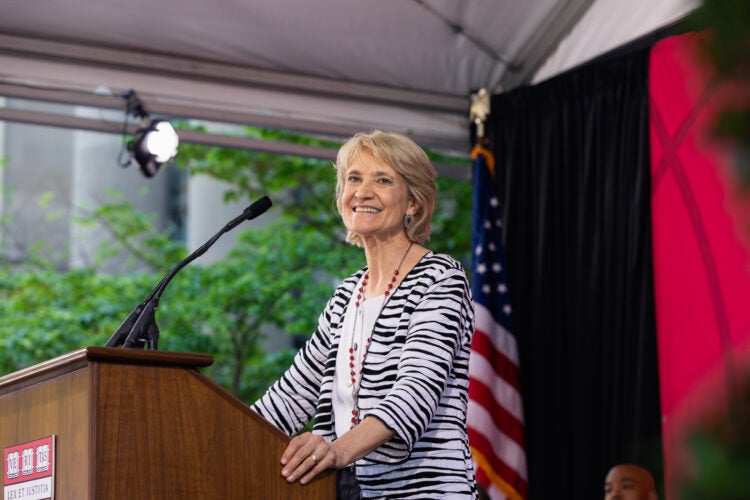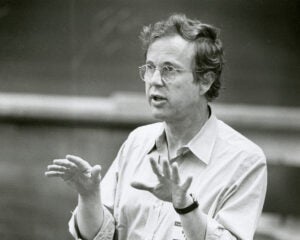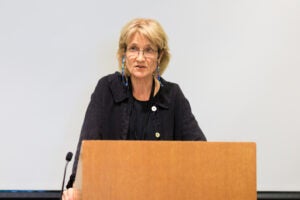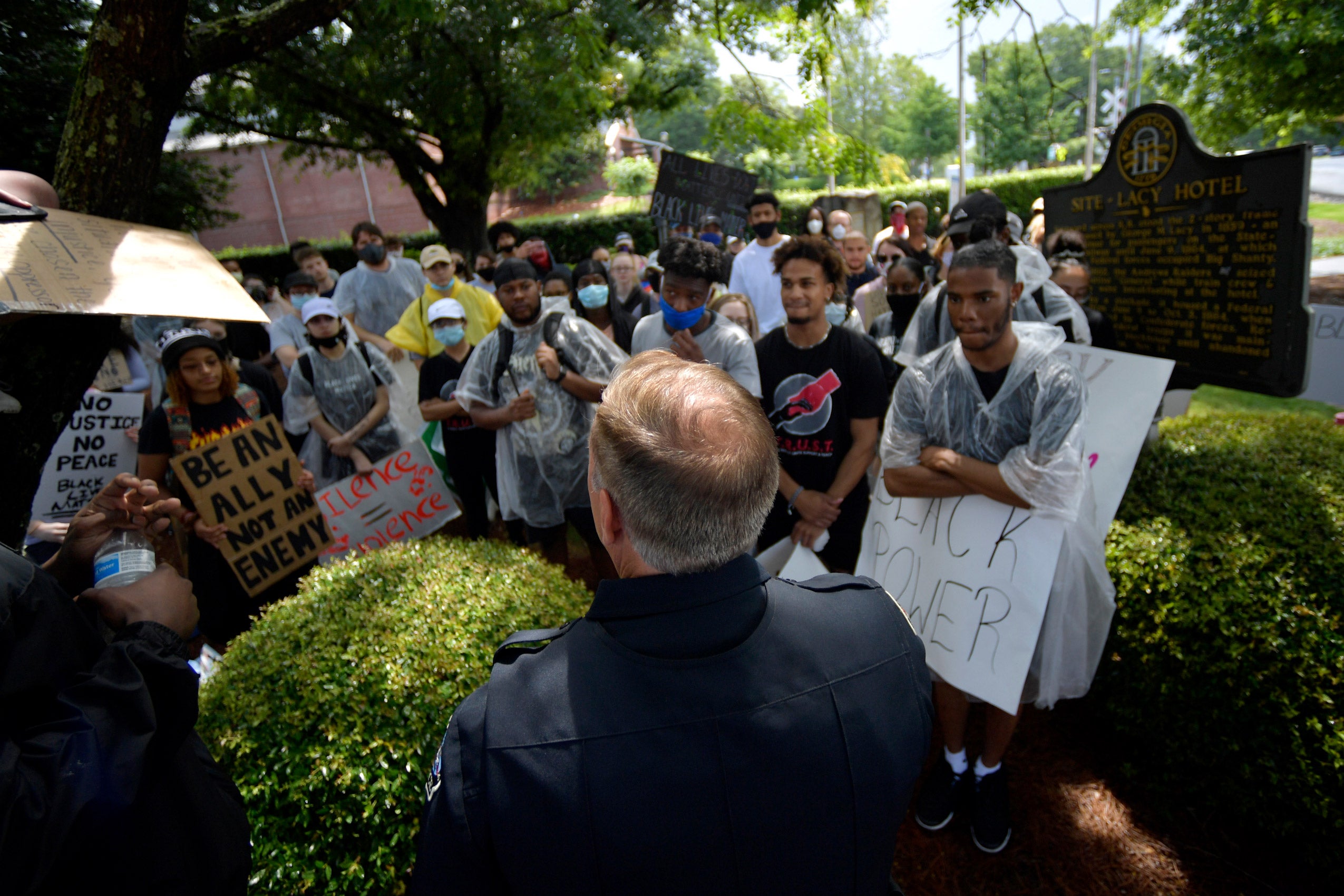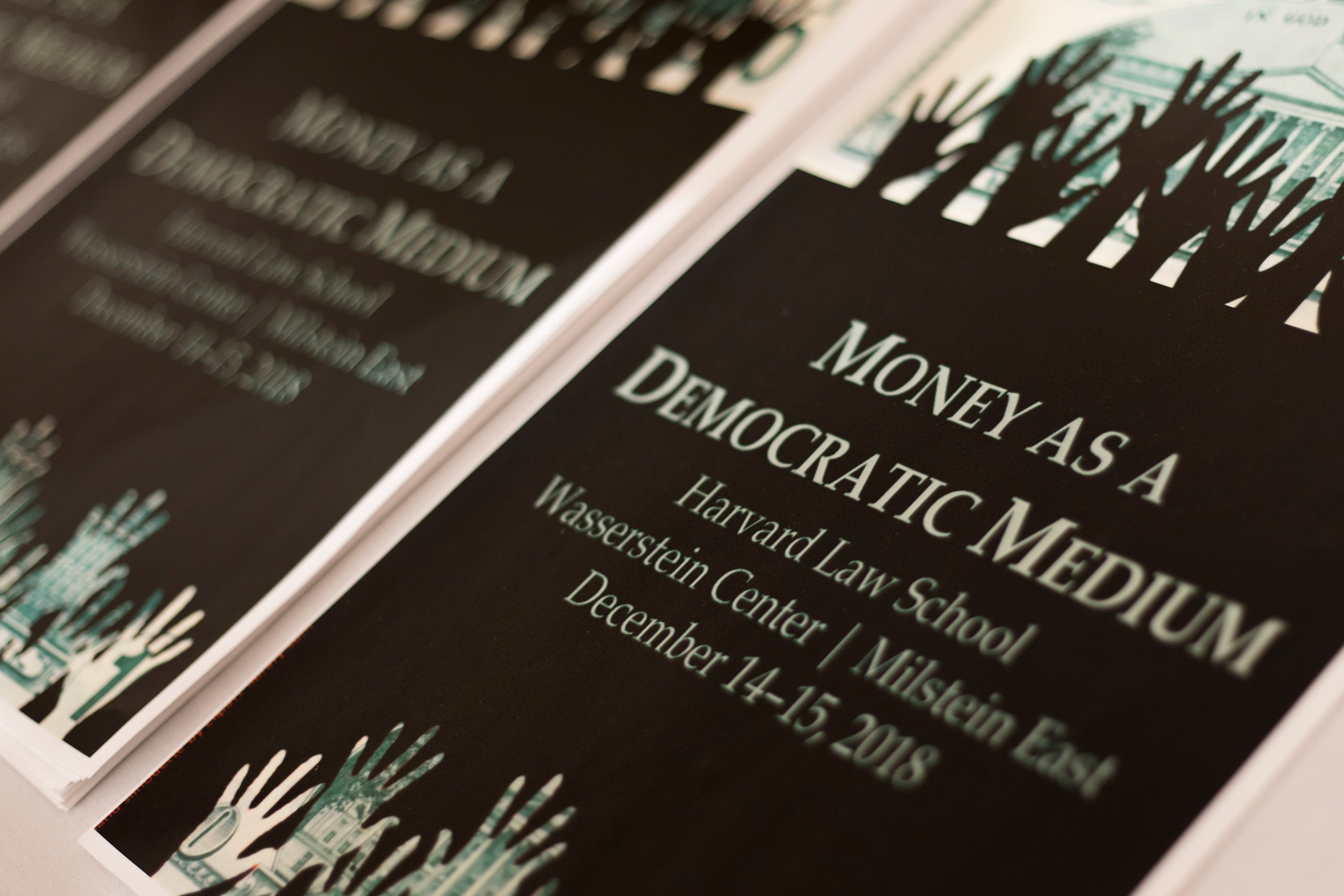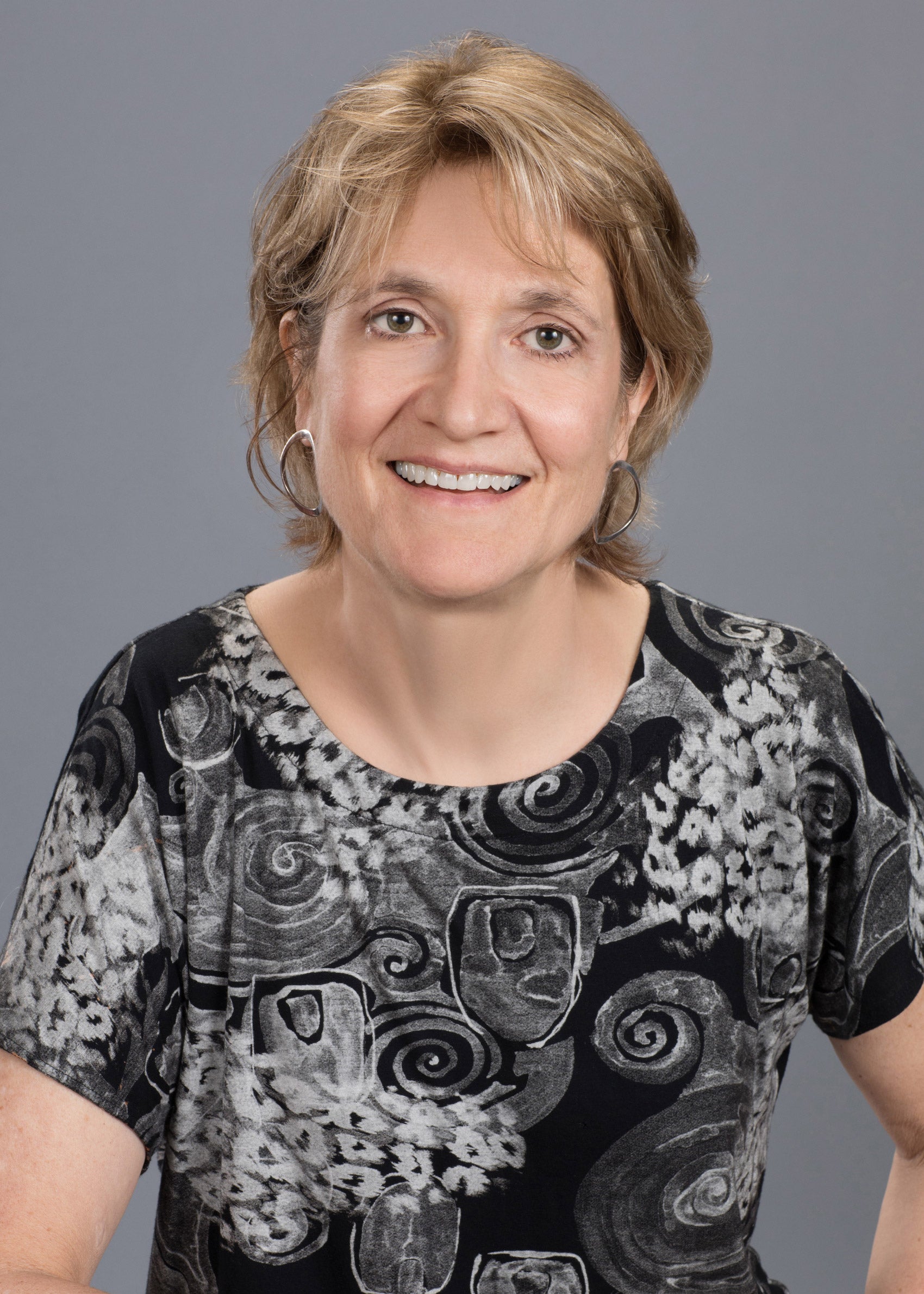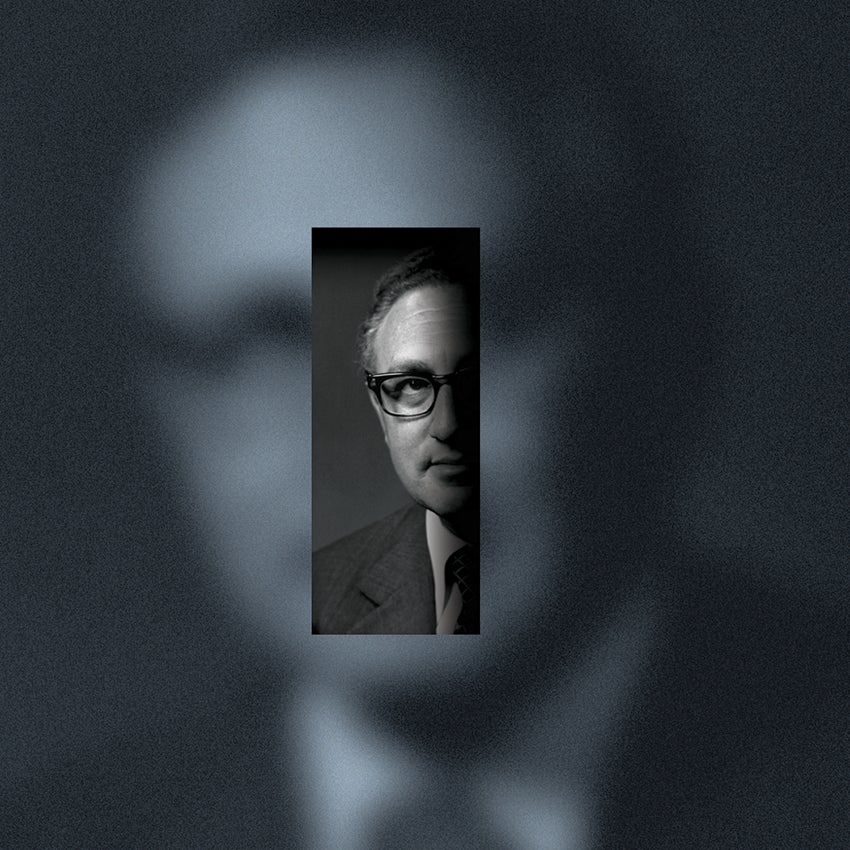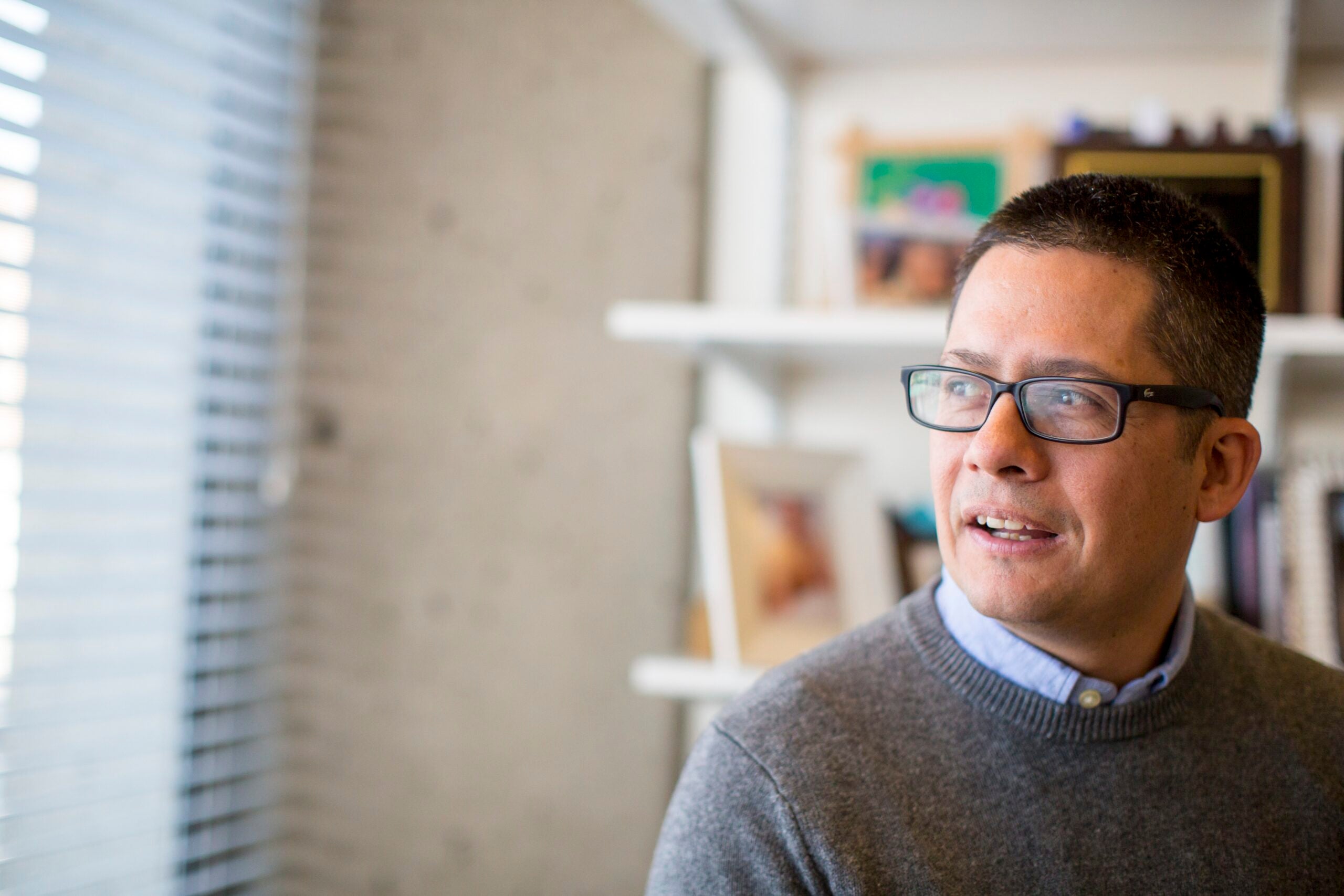People
Christine Desan
-
Gerald E. Frug: 1939-2023
November 14, 2023
Gerald E. Frug ’63, a pathbreaking scholar who reinvented the field of local government law, and a superb teacher and mentor, died Nov. 7 after a long illness. The Louis D. Brandeis Professor of Law Emeritus at Harvard Law School was 84.
-
Experts discuss “Money as a Democratic Medium” at a conference organized by Harvard Law School Professor Christine Desan.
-
Activists, lawmakers say Massachusetts public bank is solution to lending disparities
February 3, 2022
Cheryl Straughter spends at least 12 hours each weekday in the kitchen at her Roxbury restaurant, Soleil, cooking southern classics like shrimp po-boy sandwiches, ribs and fried chicken. When Straughter, who’s Black, set about opening the restaurant three years ago, she did what a lot of businesspeople do to get off the ground: apply for a loan. But banks refused her requests, saying she didn’t own enough assets that could serve as security for the loan. Ultimately, she cobbled together enough funding through grants from the city of Boston, money from relatives and $50,000 of her own savings. Straughter said she felt like a salmon swimming upstream. ... “There are many borrowers who don’t fit the metric that makes them an obvious candidate for a loan from a commercial bank,” [Christine] Desan said. “Those borrowers tend to be shut out even though they would contribute enormously to our economic development as a commonwealth.”
-
Harvard Law Professor Christine Desan says the Biden administration is harnessing fiscal and monetary policy to bolster the economy, but should move faster to address climate change, crypto markets, public banking.
-
Remembering Naomi Ronen: 1937-2021
September 21, 2021
When she retired in 2006, a plaque was put up in the library in Naomi Ronen's honor. It hangs by the reference area today, a rare tribute, memorializing someone former colleagues and patrons remember as exceptional.
-
Going public
July 7, 2021
Harvard Law School students are working to create a Massachusetts public bank to help minority-owned businesses, small farms, and gateway cities.
-
Black business leaders in Massachusetts envision a ‘new normal.’ It starts with a public bank.
May 26, 2021
Massachusetts is less than a week away from lifting its remaining COVID-19 businesses restrictions. But even as companies emerge from more than a year of immense losses and pandemic-induced rules, leaders in the local Black business community aren’t looking forward to a return to normal...So, the Black Economic Council of Massachusetts, or BECMA, unveiled a policy agenda last week for a post-pandemic “new normal” in the hopes of ensuring communities of color not only bounce back but also close those existing racial gaps...Without having to maximize profits for shareholders, advocates say the government-run institution could help meet a currently unfulfilled need for capital estimated to be hundreds of millions of dollars in Massachusetts. “The commonwealth really is leaving money on the table,” said Christine Desan, a professor at Harvard Law School...Going forward, Desan says the bank could also help generate revenue in addition to the return on loan interest rates. “What’s fascinating about a public bank is, if you can actually spark and support economic development in a city, the returns are not just the returns on their own bit they’re also returns — because the communities begin to prosper — of more tax revenue,” she said.
-
‘Deeply Unlawful’: Harvard Law School Faculty Condemn Trump’s Response to Police Brutality Protests
June 8, 2020
Members of the Harvard Law School faculty published an open letter to students and Harvard affiliates Monday criticizing President Donald J. Trump for calling for a military response to ongoing protests against police brutality. The letter received signatures from 160 faculty members, including former Law School Dean Martha L. Minow and former United States Ambassador to the United Nations Samantha J. Power. It was reopened for signatures on June 2 after requests from additional Law School teaching faculty and law librarians. The authors of the letter denounced a tweet posted by Trump on May 29 which included the phrase “when the looting starts, the shooting starts” in reference to nationwide protests following the killing of George Floyd by Minneapolis police. They argue the president’s language encourages violence by private citizens. “By legitimating lawless action by public officials, the President’s tweet invites other individuals to take similarly destructive action,” the letter reads. The White House press office did not immediately respond to a request for comment. Law School professor Christine A. Desan, who worked on drafting the letter, said Trump’s tweet signified a commitment to using violence against citizens involved in the protest. She said she finds the message problematic since Trump speaks as the Commander in Chief of the Army. “We don't under our Constitution live in a society where even if somebody is stealing something they get shot,” she said. “To have him pledge to use excessive state violence against people indiscriminately is really unlawful — deeply unlawful.”
-
HLS professors and other associates condemn President Trump’s statements about recent protests
June 7, 2020
In an open letter to the community, Harvard Law School professors and other associates condemn President Trump’s statements about recent protests
-
65 Harvard Law Professors Condemn Trump’s Response To Protests Over George Floyd Killing
June 3, 2020
Sixty-five Harvard law professors have condemned President Trump's actions in response to protests over the killing of George Floyd. In a letter, the professors say the president's tweet saying "when the looting starts, the shooting starts," commits federal authority in a way that violates the law. Harvard law professor Christine Desan signed the letter and also denounced the president's threat to deploy the military to quell protests. "One message I hope the letter sends is to remind us all that the Army — and for that matter the police forces — are not his army," Desan said. "It's not Trump's army that he’s deploying. It’s our army, our military, and we have the right and responsibility to make sure that that military is used responsibly." The letter was addressed to Harvard law students.
-
MMT and Why Historians Need to Reclaim Studying Money
April 1, 2019
MMT (Modern Monetary Theory—a form of post-Keynesian economics) is everywhere these days. Alexandria Ocasio-Cortez and Bernie Sanders embrace it; Paul Krugman and George Will write about it; the Financial Times, Forbes, and The Economist have all run columns about it. Even the men’s parenting website Fatherly had an article on it. Do historians have anything to add? ...MT, along with the euro crisis and awareness of austerity’s social effects, has done much to open monetary and fiscal debates to wider audiences. Simply recognizing that money is political and historical (central, as Harvard Law Professor Christine Desan likes to say, to how a polity constitutes itself) is a difficult breakthrough for most people. On the other hand, seeing money in this way doesn’t—in a fractured polity characterized by demagoguery and high levels of inequality—make policy any easier to write or implement.
-
Money as a Democratic Medium
January 11, 2019
Harvard’s recent two-day conference, “Money as a Democratic Medium,” challenged its participants to re-examine the history of money in America, and to redefine its future.
-
Money as a Democratic Medium: A Q&A with Christine Desan
January 11, 2019
Christine Desan, the Leo Gottlieb Professor of Law at Harvard Law School, organized the conference, “Money as a Democratic Medium,” a two-day event that challenged its participants to re-examine the history of money in America, and to redefine its future.
-
Roughly two dozen Harvard Law School professors have signed a New York Times editorial arguing that the United States Senate should not confirm Judge Brett M. Kavanaugh as an Associate Justice of the Supreme Court. Harvard affiliates — including former Law School Dean Martha L. Minow and Laurence Tribe — joined more than 1,000 law professors across the country in signing the editorial, published online Wednesday. The professors wrote that Kavanaugh displayed a lack of “impartiality and judicial temperament requisite to sit on the highest court of our land” in the heated testimony he gave during a nationally televised hearing held Sept. 27 in front of the Senate Judiciary Committee....As of late Wednesday, the letter had been signed by the following: Sabi Ardalan, Christopher T. Bavitz, Elizabeth Bartholet, Christine Desan, Susan H. Farbstein, Nancy Gertner, Robert Greenwald, Michael Gregory, Janet Halley, Jon Hanson, Adriaan Lanni, Bruce H. Mann, Frank Michelman, Martha Minow, Robert H. Mnookin, Intisar Rabb, Daphna Renan, David L. Shapiro, Joseph William Singer, Carol S. Steiker, Matthew C. Stephenson, Laurence Tribe, Lucie White, Alex Whiting, Jonathan Zittrain
-
On the Bookshelf: HLS Library Book Talks, Spring 2018
August 9, 2018
The Harvard Law School Library hosted a series of book talks by HLS authors, with topics including Authoritarianism in America, the Supreme Court of India, and Legal Reasoning and Political Conflict. As part of this ongoing series, faculty authors from various disciplines shared their research and discussed their recently published books with a panel of colleagues and the Harvard Law community.
-
Faculty Books in Brief: Summer 2018
June 25, 2018
HLS Professor Mnookin, who for many years chaired the school’s Program on Negotiation, joins two other Harvard-affiliated professors in a study of the former secretary of state’s public and private deal-making, based on extensive interviews with Henry Kissinger on negotiation strategy and tactics.
-
Concern over a DACA deadline
February 28, 2018
Three Harvard professors and a Ph.D. student in African and African American studies have launched the DACA Seminar, a series of events on campus aimed at sparking conversations about the future of the Deferred Action for Childhood Arrivals (DACA) and immigration policy and reform, while working to understand options available to Harvard's undocumented students.
-
Open Letter: We Condemn President Trump’s Incitement of Violence
December 12, 2017
To our students and the wider HLS community, We write to condemn a series of acts by President Trump that incite violence and are inconsistent with a democratic legal order. On November 29th, the President circulated unverified videos that explicitly vilified members of a religious community as dangerous. In his tweet, the videos appeared without any comment, context, or explanation, as if the fact that they concerned “Muslim” actors itself established their relevance. In that way, the videos justified hostility towards individuals on the ground of their faith alone. The President’s message further endorsed violence insofar as it expressly retweeted, thus apparently approving, a source convicted of religiously aggravated harassment...Christine Desan, Tomiko Brown-Nagin, John Coates [and 78 more HLS faculty and administrators].
